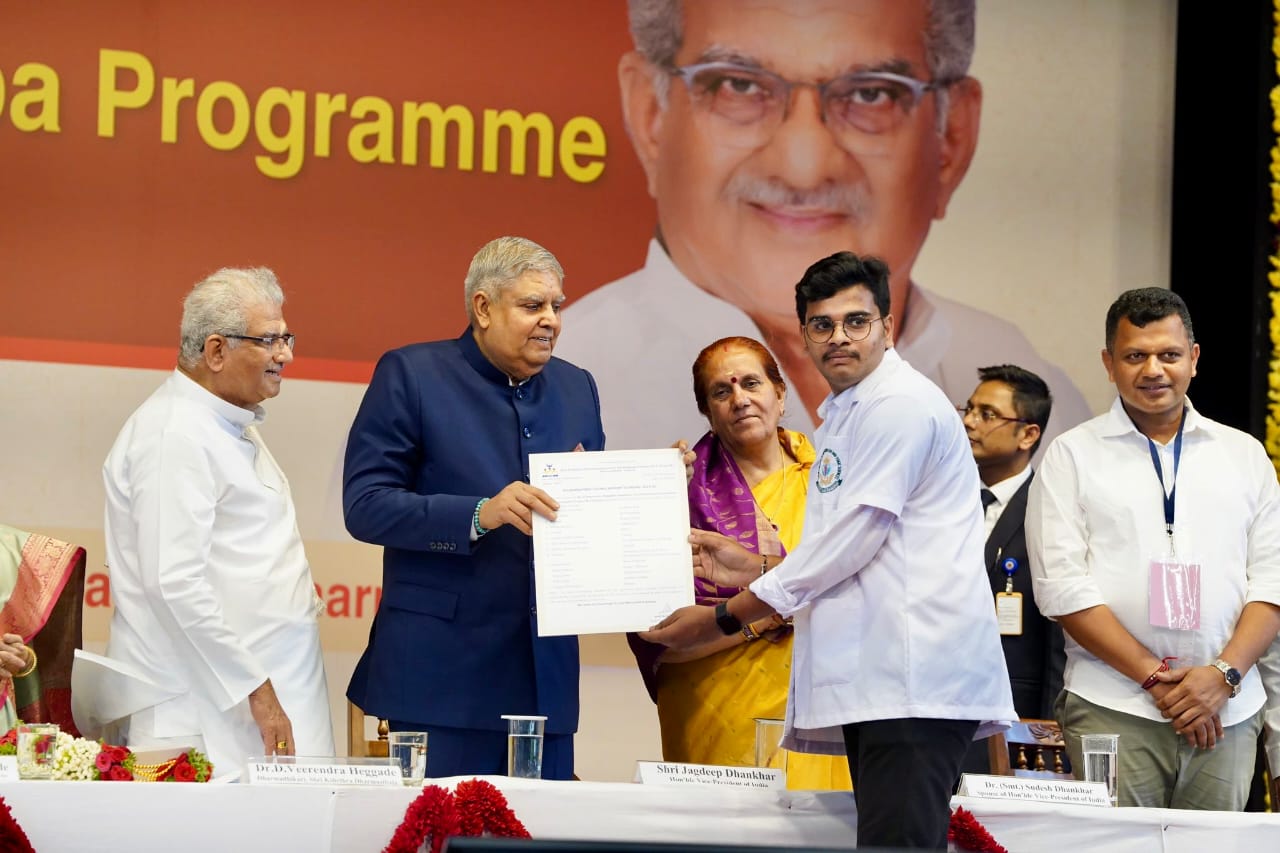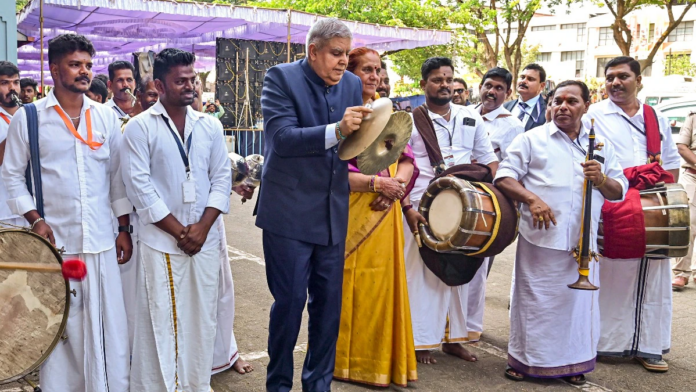Vice President Jagdeep Dhankhar has called for the abolition of VIP culture in temples, emphasizing the importance of equality in religious spaces. Speaking passionately on the issue, he remarked that giving precedence or priority to certain individuals based on their VIP status undermines the very principle of equality. “When we label someone as a VVIP or VIP, it belittles the concept of equality,” he stated, urging society to reflect on the divisive nature of such practices.
The Debate Around VIP Culture
The prevalence of VIP culture in India, particularly in religious spaces, has been a topic of criticism for years. Many argue that it creates a sense of exclusivity, granting privileged access to influential individuals while ordinary devotees face long queues and limited access to facilities. Temples, considered spaces of spiritual solace and unity, are seen as being negatively impacted by such preferential treatment.
Vice President Dhankhar’s remarks align with growing public sentiment against VIP culture, which is increasingly viewed as an aberration. “VIP culture should have no place in society, much less in religious places,” he said, highlighting the need for inclusivity in places of worship.

Equality In Religious Spaces
Religious spaces are traditionally considered equalizing platforms where people from all walks of life come together to seek blessings. The concept of VIP access undermines this foundational principle, creating a divide between the privileged few and the common devotees.
In temples, VIP culture often manifests through exclusive entry points, reserved seating, or expedited darshan (viewing of deities). Critics argue that such practices commercialize spirituality and alienate ordinary worshippers. Vice President Dhankhar’s stance serves as a reminder that equality must be upheld in all aspects of society, especially in places of worship that symbolize unity and shared faith.
A Broader Call For Change
The Vice President’s comments resonate beyond temples, addressing a broader cultural issue in India. VIP culture, seen in public spaces, transportation, and government offices, has often been criticized for fostering a sense of entitlement among a select few. This culture, many believe, perpetuates social hierarchies and undermines democratic values.
By advocating for its removal in temples, Dhankhar has sparked a larger conversation about the need to dismantle such practices across society. His call challenges both institutions and individuals to uphold the principles of fairness and inclusivity.

Public Reactions And Implications
Dhankhar’s statements have garnered significant public attention, with many supporting his call to action. Social media platforms have seen discussions around the issue, with users sharing their own experiences and frustrations with VIP culture in temples and other public spaces.
Religious institutions, too, are likely to come under scrutiny, with calls for reforms that ensure equal access and treatment for all devotees. Some temples have already initiated steps to limit preferential treatment, introducing standardized procedures for entry and darshan.
A Step Toward Equality
Vice President Dhankhar’s advocacy against VIP culture is a step toward reinforcing the values of equality and fairness. By challenging societal norms that promote exclusivity, his remarks urge citizens to reflect on the importance of inclusivity in every sphere.

As temples and other institutions consider the implications of his statements, this call for change serves as a reminder of the shared values that bind society. Ending VIP culture in temples is not just about reforming religious practices; it is a symbolic step toward building a more equitable society.

